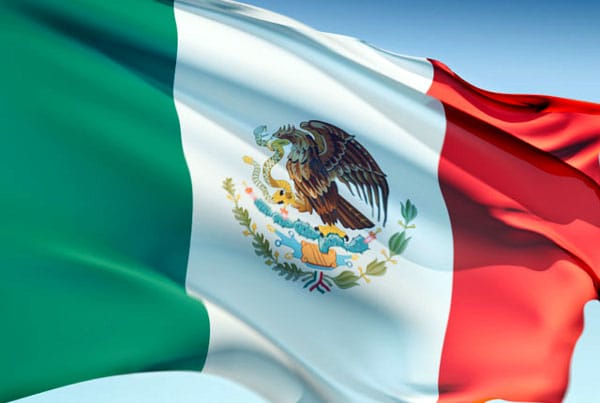Mexican President Calderon Criticizes US Drug War Role

Credit: mexican-flag.org

Mexican president Felipe Calderon criticized the United States as part of the problem in the country’s continuing war against drug cartels in his final report to the nation. Calderon, a conservative won election in 2006. Enrique Pena Nieto whose party ruled Mexico for several decades prior to 2000 will replace Calderon on December 1.
Calderon claimed that the United States was, “co-responsible” for the violence the nation has suffered in the drug war in his annual report. The president also contended that US drug users were “providers of funds” and “providers of weapons" to violent drug cartels. Calderon has advocated legalizing limited quantities of marijuana and cocaine to curb the illegal drug trade during his presidency.
Calderon intensified the Mexican government’s response to the cartels during his six-year term as president. The United States has provided the Mexican government with unmanned drones, helicopters and undercover US agents in support of Calderon’s fight against drug traffickers.
However, Calderon has remained critical of the role United States has played in the drug war telling reporters that expiration of the US ban on assault rifles intensified violence in his country. During a White House press briefing in April the Mexican president stated:
“The expiring of the assault weapons ban in the year 2004 coincided almost exactly with the beginning of the harshest -- the harshest -- period of violence we've ever seen.”
The assault rifle ban was a hot button issue in the 2004 US presidential and congressional campaigns. Democratic presidential candidate John Kerry supported continuing the ban, while congressional Republicans argued for the ban’s expiration. Then President Bush said he would not veto the legislation.
Congress enacted the assault weapons ban in 1994 with the support of former president Ronald Reagan. Sunset provisions of the bill came into effect in September 2004, when congress failed to renew the law. Proposals to reenact the legislation have failed since then.
Calderon also criticized the United States for not doing enough to curb financial support to drug cartels during his national address.
"We firmly express the need to slow the flow of criminal weapons and cash fueling the violence in our country."
Congressional investigations have implicated prominent banks in money laundering schemes with drug cartels. Most recently, HSBC’s head of compliance David Bagley agreed to step down after an investigation found the bank in violation of US transaction and transfers laws. Senate investigators linked the bank to illegal dollar transactions with terrorist groups and drug traffickers. A congressional investigation of Wachovia, now owned by Wells Fargo, and Bank of America implicated both banks in dealings with drug cartels in 2010.
Drug related violence continues to take a heavy toll in Mexico. In January, the Mexican government provided figures that estimated that the violence has claimed the lives of over 47,000 people since 2006. It is the last time the Mexican government has provided such data. Scholars at the Woodrow Wilson International Center in Washington D.C. disputed the figures suggesting the death toll may be higher.



